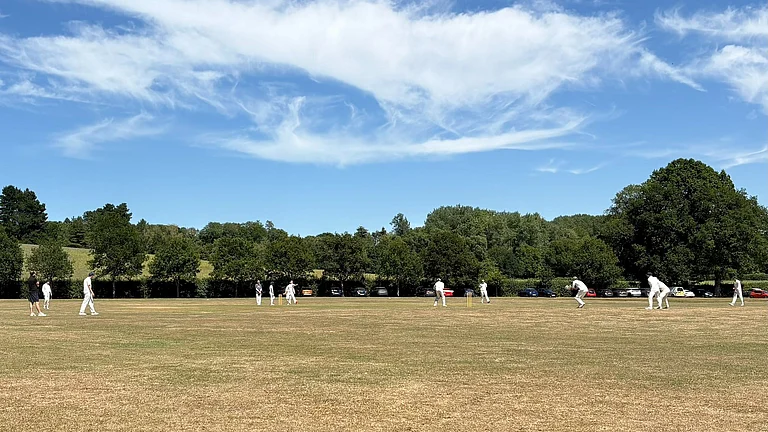Mallika KaurPalgrave Macmillan, India Edition Jan. 2022.
“There’s just so much we don’t know (...) And so much we know that wasn’t recorded or preserved,” says Justice Ajit Singh Bains, one of the protagonists of Mallika Kaur’s book, to the author in the very introduction of this fascinating new book that seeks to embrace the unknown and preserve what’s known but almost lost for future generations like mine. Justice Bains passed away recently. His story, with countless others, is thankfully preserved. Through these stories, Kaur provides a multi-layered account of modern Punjab and Sikh history. Defying strict academic or storytelling categorisations, Kaur connects the minutest details of the personal with broader political history. She focuses on the lives of those who defended the rights of others during the most dangerous times in Punjab. Such principled citizen-activism is inspirational and relevant not just for Punjab, as we recently saw during the farmers’ protest, but in fact for the world in 2022.
As Kaur explains in her introduction, this book is committed to following the stories of “noncombatants committed to honouring ‘no-names,’ rather than debating the minutest machinations of ‘leaders’.” Through her work, she is, of course, memorialising countless names that have not been dignified with enough remembrance prior to this account. She refuses silence and counters denial and erasure of wrongs with lucid personal accounts from human rights defenders. One such defender that Kaur converses within her book is Baljit Kaur.
Baljit Kaur is a trailblazer, but also a woman—like too many of our mothers and grandmothers—whose decades-long contributions have received scant recognition, even from those of us who study Punjab’s history and conflict. Through various conversations, even as the graceful Baljit Kaur serves “tea with courageous equanimity,” we learn about her strategic use of her family’s connections and good fortune to travel Punjab in its darkest times, recording human rights abuses on what was earlier the family’s imported video camera for children’s birthdays and functions. We are prompted to imagine Baljit Kaur protesting outside police stations and speaking quietly to brutalised families inside their homes. While Baljit Kaur’s own works are a testament to a life lived for truth and justice, Kaur's conversations with her capture the personal history—as well as silent personal sacrifices—behind that legacy.
Importantly, this book lifts the veil over the gendered dangers of the conflict by amplifying the accounts of its female protagonists. “Their stories critically highlight how attention to various forms of gendered violence is a prerequisite for transition from conflict to a just peace,” she writes. Some of Kaur’s protagonists are survivors of grave brutality, while others documented the widespread nature of that brutality. Kaur's work amplifies the muffled voices or 'whispers', as the book's title calls them, of those who witnessed and fought injustice.
Written in two parallel timelines, her work reinforces the centrality of memory and history in Punjabi political realities. Sometimes patchy, the two timelines of pre-Partition Punjab and modern Punjab history come together in the year 1984. While many accounts of 1984 in India limit their observations to the pogrom in Delhi in November 1984, Punjab begins its remembrance and mourning in June every year. What transpired between these pivotal months in 1984 is also explored in the final chapter, “Ten Thousand Pairs of Shoes,” dedicated to all those who took off their shoes outside gurdwaras across Punjab in June 1984, never to return.
Authors often tend to synopsise and paraphrase the accounts on which they build their work. However, given her training in human rights lawyering, Kaur knows better than to substitute testimonies with her observations. She often steps back and lets her protagonists tell their truth in first person. She authenticates these statements with meticulously archived court records, newspaper snippets and other official orders.
In a conflict where faith and activism were pinned against each other through pro-state assimilative machinations, Kaur is not afraid of underlining the significance of faith in building community resilience. As one can comprehend from the record number of UAPA arrests in Punjab and the repression during the historic Kisan Morcha (farmer's protest), Punjabi and Sikh persecution continues. Faith often becomes a direct marker for manufacturing jingoistic consent for such persecution.
Kaur weaves the corroborated testimonies of her central characters with Gurbani Shabads (hymns), recollections from her own childhood and fragments from her family's memoirs. In many ways, this book is a work of community memorialisation, and Kaur has stitched together a blanket from patches of community and personal memories. In doing so, she has weaved a powerful tool for collective catharsis and healing.
(Guneet Kaur is an International Human Rights Law Advocate and Scholar, currently pursuing doctoral research at Humboldt University, Berlin)





















